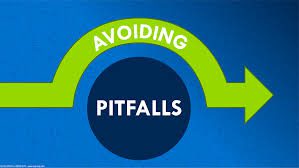Original post from Entrepreneurs Handbook written by DC Palter, Photo by Sander Meyer on Unsplash
In 20 years as CEO or CMO of tech businesses, I’ve signed thousands of non-disclosure agreements (NDA).
I’m not against NDAs. They fill an important business purpose.
However, as an investor, they aren’t appropriate, so please don’t ask me to sign one. Like VC firms and other experienced angel investors, I’ll walk away before signing an NDA.
Here’s why venture investors won’t sign NDAs, and how to work around it.
Why Investors Won’t Sign NDAs
NDAs are Meaningless
Of the millions of NDAs that get signed every year, the only ones I’ve ever heard of ever being enforced are when top employees jump to a competitor.
In every other situation, an NDA is nothing more than a formalized handshake. Absent someone posting your source code online, it’s impossible to prove that confidential information was misused and that the damages are more than the millions of dollars in legal fees it’ll cost to sue the transgressor.
Either you trust someone, or you don’t. If you don’t trust an investor, don’t give them your confidential information, even if they did sign a piece of paper.
There’s a Cost to Signing NDAs
If we take NDAs seriously, as we should for any legal agreement, there is a cost associated with signing each one. If there was a single, standard template everyone used (hey Y-Combinator, I’m looking at you), that might help the problem.
Even though NDAs tend to be boilerplate, there’s a lot of variation. Each NDA has to be reviewed for the specific terms: does it apply to everything that might be considered confidential or only materials marked confidential; does it expire in 2 years or 5 years or never; are we supposed to segregate all confidential materials and return or destroy on demand; can anyone in the organization view the materials or only members with a ‘need to know?’ Does it preclude me from saying anything about the company without their permission?
Signing an NDA means having a lawyer review and negotiate changes, keeping track of the NDAs and their specific requirements, and having the infrastructure to segregate confidential info from non-confidential info.
A VC firm sees hundreds of decks per week. It’s not practical to sign NDAs for even a small fraction of them.
We See a Lot of Overlapping Businesses
At least once a month, I see a pitch for a better EV battery. Or using machine learning to identify potential drug candidates. Or building an inclusive, supportive social media platform. Or protein bars. You can’t imagine how many pitches I’ve seen for protein bars despite my lack of interest in CPG.
The businesses often overlap, at least superficially. At least for the batteries, I’m likely to invest in one. (Pass on the protein bars, though I’m happy to accept free samples.) I might join the startup’s board or even jump aboard as the head of marketing.
Yes, I’ve heard the pitches from competitors. I’ve probably even taken part in the diligence process and know a bit about the companies. I need the flexibility to be able to work with the company I invest in, so I’m not signing an NDA, which limits my flexibility to work with anyone else.
Your Secrets Aren’t So Special
As an investor spending a few minutes reading a pitch deck or at most a few days doing diligence on a company, I shouldn’t have access to secrets that will make or break your business.
This is different from an employee who’s deeply involved in the business. All employees need to sign NDAs. So does a board member. An investor doesn’t.
I’m Scared of You
At least once a month, someone tells me how they once had the greatest idea in the world. They pitched it to a customer or investor who stole it and made billions.
I tell them I’m sorry to hear that. What I don’t say is that this is exactly the kind of crazy person I need to avoid signing an NDA with.
Investors are not out to steal your brilliant idea. Neither are competitors. Ideas, to be blunt, are worth nothing. It’s the product, the execution, and the marketing that makes a successful business. I’m investing in the founders more than the product itself.
The founders who think their brilliant ideas are gold are the people most likely to sue me when a competitor that I invest in comes out with their own product.
My variation on Groucho Marx’s famous maxim is that the people who demand I sign an NDA are exactly the people I need to avoid signing an NDA with.
That’s Just How the System Works
In the end, this is how the industry works. Startups need money; VCs are handing out checks. So they get to set the rules. And the rule is they don’t sign NDAs.
When a startup comes in, demanding an NDA before being willing to discuss their business, that’s a huge red flag that says the entrepreneur doesn’t understand the startup world. If they don’t know that NDAs are a non-starter, there are usually a dozen other things they don’t know about building a successful startup.
Asking for an NDA is an easy way to get weeded out. So if you want to get funded, don’t do it.
How to Protect Your Business Without an NDA
Without an NDA, how do you protect yourself from critical secrets being leaked to competitors?
Decide What Truly Needs to be Protected
Does your customer list matter? No, your competitors already know most of it, and even if they don’t, the list won’t help them.
The same is true for your financials, cap table, and strategy. An early-stage startup’s strategy is likely to change tomorrow anyway.
Does your technology matter? Quite possibly. But only in the details that I will neither understand nor want to know.
In other words, you can tell me you’re using graphene to make a better battery. You can even show me the test data. But without the details of how to manufacture it, I couldn’t replicate your product.
If I ask about the one or two core things you need to keep secret, just tell me that needs to stay confidential, and I’m fine with that.
I would rather not even hear about those items than sign an NDA and have to segregate that information in my mind.
There’s also the issue of patents. If you haven’t filed for patents yet and disclosing the details without an NDA would limit the ability to apply for a patent, then don’t disclose those specific details.
Be Careful With Customer NDAs and Agreements
It’s guaranteed that investors will want to look at your customer list. Anticipate this.
If customers require you to sign an NDA, try to include a carve-out that allows you to discuss it with potential investors and advisors.
Similarly, if you have one big customer or a technology license agreement with a university or partner, there’s no way to evaluate the business without knowing the business terms. Try to anticipate the need and find a way to make the information available to potential investors without an NDA.
Get Permissions
If you can’t get a general carve-out in the customer NDAs and license agreements, don’t bother arguing with the lawyers. Simply go back to the end-user afterward, tell them you’re talking to investors and ask if it’s okay for us to call them. They ought to say yes to the specific request without having to change the NDA itself.
Have a Tiered Disclosure Process
In the pitch deck that gets circulated widely and often shared, you shouldn’t give away too many critical details. A few customer names, technology overview, and investment terms are sensitive but not critical to keep confidential.
During a pitch, you may need to divulge more. Decide what you’re comfortable sharing in the larger group vs. waiting to see if there is interest in moving forward into the diligence process.
As the discussions get more detailed with the few serious investors, you can dive into a deeper level of disclosure to the small audience.
It’s perfectly fine to say that a few critical pieces of information can only be disclosed during diligence. But if it’s general information like business strategy or technology overview (rather than the details), it’ll turn away potential investors.
If Absolutely Needed, Ask for an NDA at the End of Diligence
Once in a while, particularly for a hard tech startup, investors need to analyze the technology to validate the company’s viability. This will usually be done for the VC by a consultant who will sign an NDA.
The VC itself doesn’t need to know the secret sauce; they just need to know that there is a secret sauce that works.
The NDA should only be required as the last step in the diligence process and only with the consultant doing the evaluation, not with the VC firm.
In the end, investors will not sign an NDA and asking for one is likely to end the discussion.
With or without an NDA, you have to assume the worst — that investors will evaluate your company, then invest in a competitor. Some information may leak. But shooting for the moon means taking calculated risks. That’s what being a startup is all about. The risk-reward should point to divulging the information investors need to know to evaluate the business.
So be prepared to divulge all but the most critical information without an NDA, but be sure to protect the very few things that need protecting.
Thanks to fellow Chemical Angels member
for suggesting this article and reviewing the details with me.




